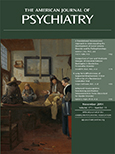Mental Health and Deafness
This text is a wonderfully written, comprehensive, and gripping chronicle of the struggles and advances of deaf and hard-of-hearing individuals worldwide and of the need for culturally competent and appropriate mental health examination, diagnosis, and treatment of those individuals who present with mental illness. It is aimed at health care providers who thus far have had little or no experience with the examination, treatment, and management of deaf individuals. It clearly meets or exceeds the authors’ objectives. The deaf tend to be an underserved population in general, and practitioners who do not have a specialization with deaf patients have a need to become acquainted with the Deaf culture. Deaf with a capital “D” denotes the proud members of a unique community of people with their own customs, traditions, mannerisms, languages, and other means of expression. Each country has its own unique sign language (e.g., American Sign Language is entirely separate and distinct from British Sign Language) and other means of expression. For practitioners to competently evaluate any patient, their linguistic, cultural, educational, medical, genetic, and family backgrounds must be taken into account and understood. While true for any patient anywhere, this is especially true for Deaf patients because of the dearth of knowledge about this population among health care providers. Few, if any, receive any formal training about the Deaf culture, and many have little exposure to the care of the Deaf in training and/or in practice, and yet a Deaf person could seek services at any time. Mental Health and Deafness goes a substantial way toward helping fill in knowledge gaps for practitioners and helps fill a sorely needed niche. The book is designed for family doctors, psychiatrists, social workers, and psychologists just for that purpose and is highly recommended.
The book does a nice job of covering issues affecting Deaf individuals, and after more general considerations is laid out in a developmental pattern, with unique considerations of age groups encountered from infancy, childhood, adolescence, adulthood, and senescence. It describes sad historical and frequently misguided efforts at education and socialization of Deaf individuals. Far too-frequent injustices have resulted. This problem remains today, although societies and health care professionals have gotten better at identifying deafness and recommending culturally appropriate and needed services. Not recognizing that an infant is deaf can and will have profound and tragic lifelong consequences upon the individual, his or her family, and society. This book poignantly notes the hard choices that hearing parents with deaf children and deaf patients with hearing children face. With what culture will the children identify? What opportunities will they have, and what opportunities will they miss? If not handled well, fractured families, educational missteps, and resultant behavioral problems, as well as psychiatric misdiagnoses and well-intentioned but poor treatments, may and will result. Management issues such as whether to send the child to a residential Deaf school versus mainstreaming, the consideration of cochlear implants, and other critical decisions are discussed.
Diagnostic testing and assessments are spelled out and are nicely referenced. One overarching theme is the importance of a culturally competent and informed, thorough assessment of the patient as an individual. The mistake of lumping all deaf/Deaf patients into the same category cannot be made any more than it can with hearing patients. Each patient has a unique set of characteristics—of which it is critical that it be considered—such as genetics, identified culture, language of choice, educational background, and family dynamics and attitudes. The examiner, unless fluent in sign, must have qualified sign language interpreters and must, in cases of extreme language dysfluency, utilize certified Deaf interpreters where appropriate. Interpreters as third parties can unintentionally distort the doctor/provider-patient relationship, and issues related to this must be considered.
Diagnostic categories and special considerations for Deaf, deafened, and deaf-blind individuals are reviewed. As part of an excellent discussion on diagnostics, evaluation of possible hallucinations and disorganized thinking (versus language dysfluency) must include a thorough understanding of the patient and his or her language abilities. Legal charges as they relate to Deaf patients require a comprehensive understanding of the patient and an adequate legal defense as well. There must be a culturally informed and competent mental health evaluation when mental health issues are in question.
A case is made for competent and accessible mental health services for Deaf individuals, where every member of the mental health team, from receptionists to providers, should sign, and liberal availability of interpreters should be made. Many locales at least in the United States do not have such services, and worldwide there is still a long way to go.
This text is abundantly referenced with relatively current as well as historical literature cited, is nicely indexed, and is scientifically sound. Mental Health and Deafness, by Du Feu and Chovaz, should be on every provider’s bookshelf.



